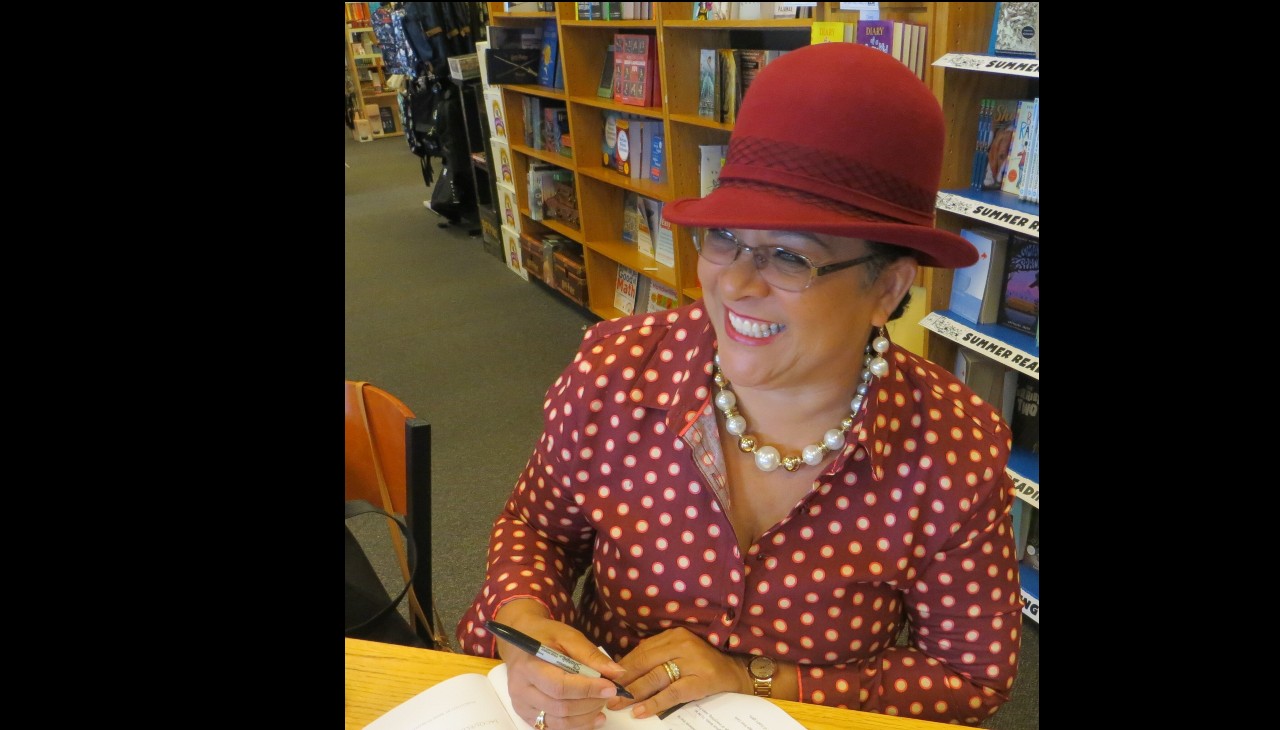
What pushed Jacqueline Torres to found her own bilingual publishing house?
She wanted to connect more Latino communities in Connecticut and beyond.
After signing a contract to publish her first Spanish-language book with a major publisher, Jacqueline Torres was surprised to discover that the company didn’t have any editors on staff who were proficient in Spanish. This experience inspired her to start her own bilingual publishing house.
Founded in 2019 in Manchester, Connecticut, Manuscritos Publishing creates its own books for both English and Spanish speaking readers and helps new authors publish their work.
AL DÍA had the opportunity to interview Torres about her commitment to Spanish-language literature, bilingualism and her mission as an advocate for social justice in the Latino community.
How was your childhood as a Latina in Connecticut? How did your Latino origins influence the person who you are now?
My childhood was filled with love, laughter, a great family and friends. I come from a large family and my mother is second in a line of nine siblings. My mother, for the most part, was a single parent, but she was resilient, strong, and a fighter. I take after my mother with those strong qualities to position me in leadership opportunities.
Born to Puerto Rican parents and proud of my heritage is what keeps me connected to my Latino culture and grounded to my humble beginnings, from which I draw a lot of my energy. My passion is social justice for my Latino community, and that is what connects my compassion. I want to make sure the Latino community can be all that they are destined to be —and that is greatness!
How did the idea of creating Manuscritos Publishing come up?
Manuscritos Publishing was born out of a need that was not met when I decided to write in Spanish. The reason for me wanting to write in Spanish was due to my audience at my speaking engagements who wanted me to write in Spanish because I would only bring books I coauthored in English. Language is very important to me, particularly because that is the element that connects me quickly to my Latino community.
Although I speak both English and Spanish, there’s something about when I speak Spanish. I take my time to hear others speaking in their native language and it brings me a smile and great childhood memories. I made it a point to never forget how to speak Spanish, not only because my mother spoke it at home, but also because it was critical to me to be employable in any industry.
What kind of books were you writing before becoming a publisher?
As a writer, I wrote personal and professional development books as well as educational books. As I set a goal to be an effective communicator and great leader, I saw that the best way was to read, learn and put into practice what was the function of great leaders. In educational books, it was important for me to talk about social justice in everyday platforms, whether it be personal, professional, or spiritual.
RELATED CONTENT
Your latest books —'La violencia doméstica y el sistema religioso', 'Dios tiene un plan', 'Los secretos de Tamar'— were published directly in Spanish…
I chose to write my last four books in Spanish because those were issues that as a social justice advocate I saw were happening in the community and that my Latino community needed to be aware of the resources available to them. Otherwise, if they’re not in Spanish, they dont’t exist!
How is Manuscritos Publishing doing four years after its foundation?
We have published over 10 books and have new writers getting ready to publish their books with Manuscritos Publishing. I am also proud of Manuscritos Publishing because in 2022 we were chosen out of 30,000 applications and the only one selected in Connecticut for a Community Champion Award.
There are many Latinos in the US, but it seems it’s hard to find editors on staff who are proficient in Spanish. What is the solution to that?
The solution to get proficient Spanish editors is to produce more Spanish books that culturally connect to the Latino community. Involving the Latino bilingual community in reading. I come across so many people daily that, just because they speak Spanish, they think they can interpret, translate or write. As much as I am proud that these people can speak Spanish, nobody wants to read.
In my experience, Latino parents are underserved because if there’s no Latino literacy in libraries, they most likely will not visit the library. After all, there’s nothing that relates to them reading to their children. A majority of Latino parents still speak Spanish at home to their children. To engage Latino parents to read more to their children, the community resources need to be culturally specific to the community they serve.












LEAVE A COMMENT: